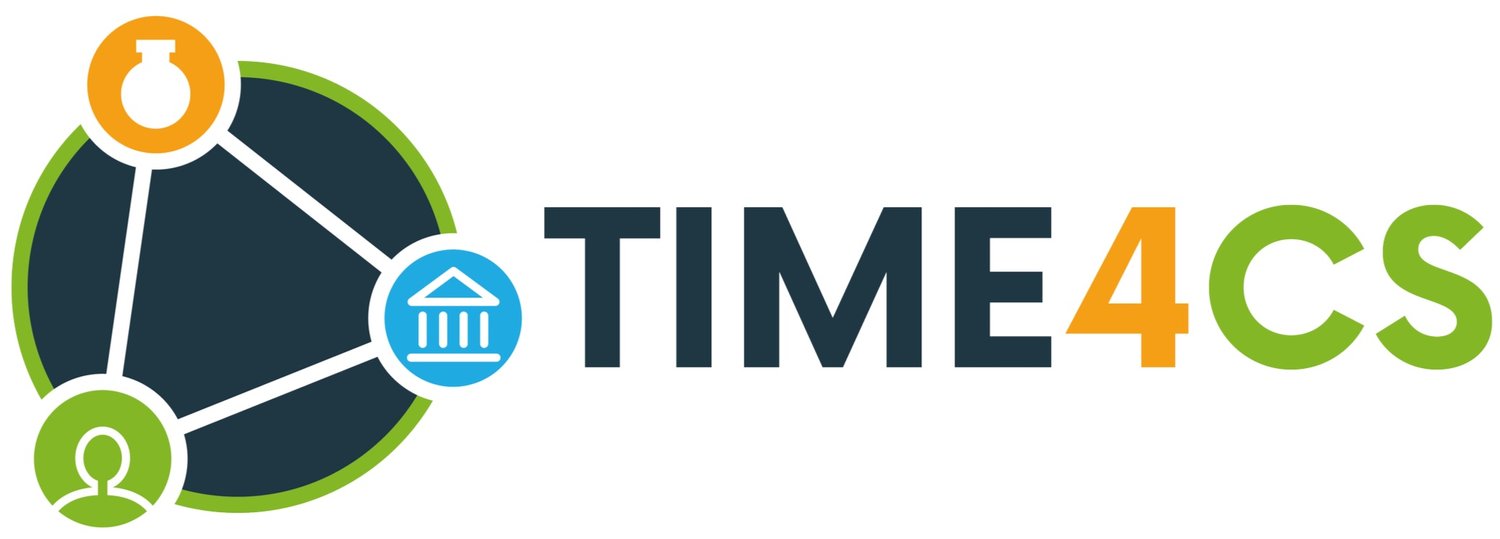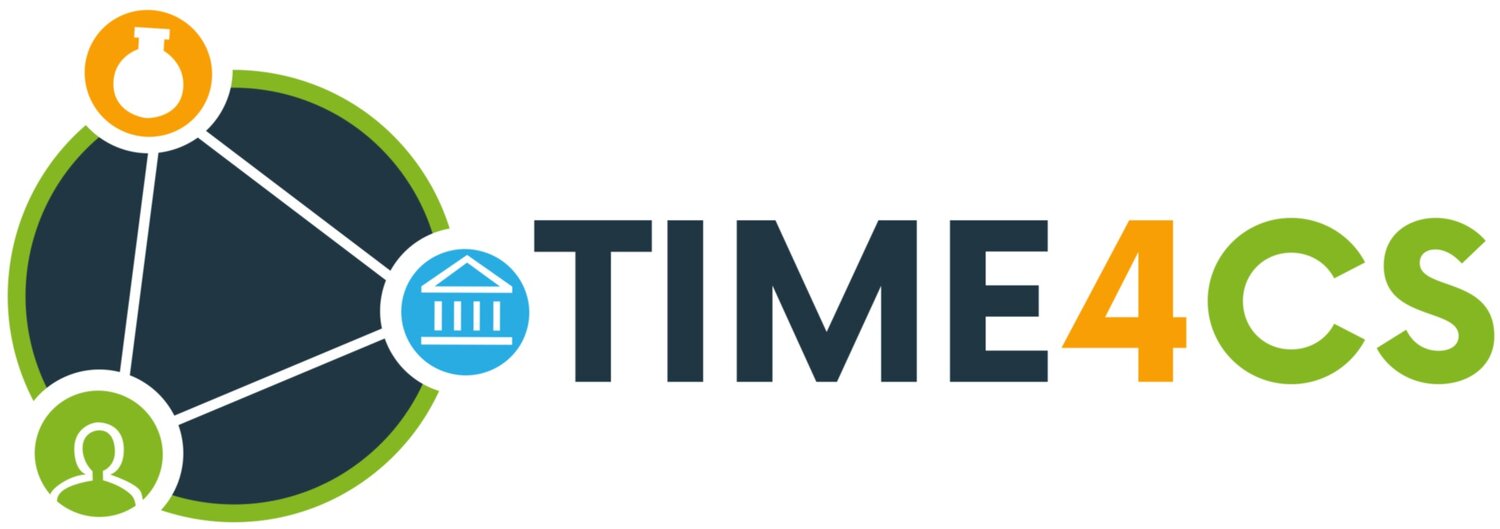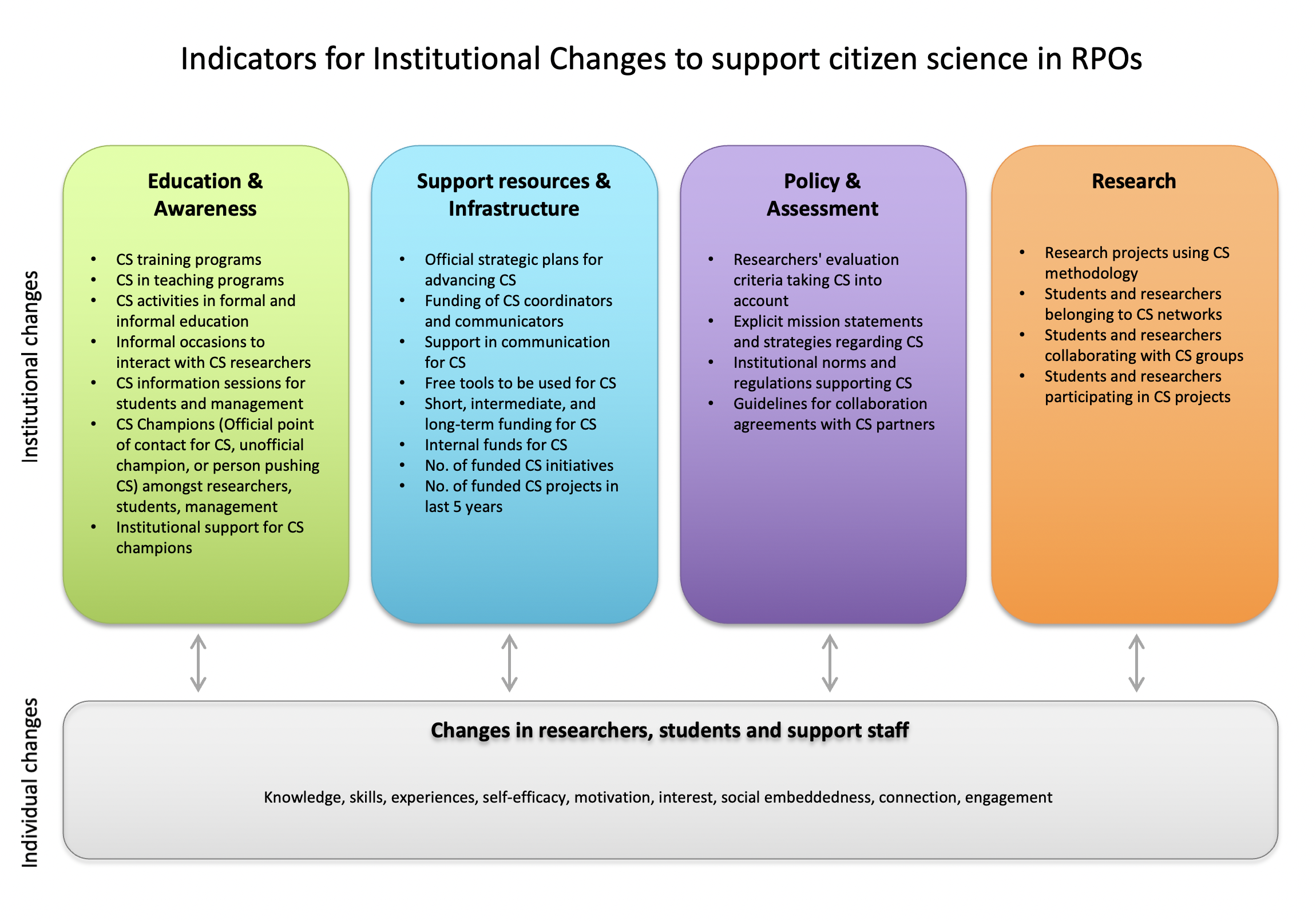Evaluation of institutional changes that drive citizen science within research performing organisations: We are halfway through …
In Time4CS we want to support Research Performing Organizations in defining and implementing institutional changes that lead to a better engagement of citizens in research and innovation.
If we want to learn how this works in very different settings and if we want to understand in how far we are successfully reaching our project objectives – a proper evaluation and impact assessment is key. This is part of the Workpackage 5 and is under the lead of ZSI – Center for Social Innovation.
Evaluation is integrated in all Time4CS project activities from the very beginning. It is understood as a form of participatory evaluation that initiates the conversation on expectations, objectives, and impact already at the start of the project. It should allow to 1) learn about the process of implementing the ground actions in different contexts (formative evaluation) and 2) collect evidence for the impact on individuals and their institutions (summative evaluation).
With these aims, we have started the evaluation process with an initial “stock-taking” exercise that involved representatives from the four Time4CS implementing organizations - CRG, KTU, UniSR and Tyndall. This first stock-taking exercise helped to understand the current situation in these organizations.
In a next step we discussed more concretely about the expected impacts. For each of the developed grounding actions that should be implemented during the Time4CS project, we started to collaboratively define the expected outputs and outcomes. We talked about the involved stakeholders and how they could be an integral part of the evaluation activities.
Then we elaborated the first data collect instruments. For that reason, we have developed the format of an “Implementer Forum”, where the four implementer organisations meet every six months to share their lessons learned from the implementation of their grounding actions. In future, we will work more concretely on questionnaires for participants of theTime4CS trainings and workshops, and on different interview formats that help us to understand more deeply how researchers, students and support stuff within the implementer organisations are impacted by the Time4CS activities.
As we are in the middle of the project and the first grounding actions are starting to be implemented. We are eager to learn from the many upcoming concrete experiences and to hear about the lessons learned by our implementer organisations. We are happy to share these insights with the interested citizen science community in the upcoming project months.
If you want to have a more detailed look at the evaluation work in this project, you can take a look at our evaluation and impact assessment plan.
Fig: Indicators for institutional changes that support citizen science – on individual and institutional level.
Author: Teresa Schäfer (ZSI)


